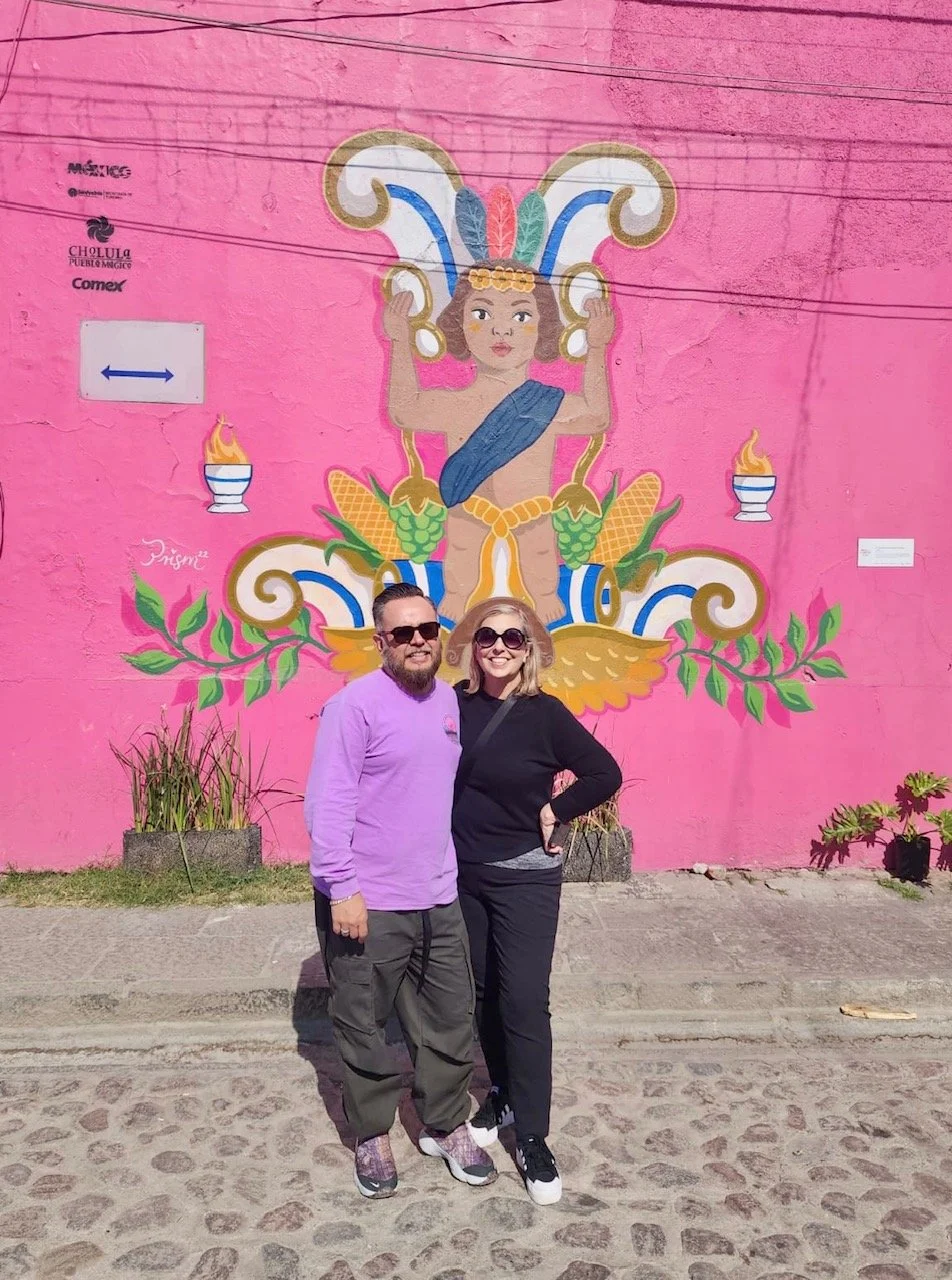She Followed Her Instincts, not a Timeline
Rebecca Smith Hurd, writer (and all-around badass!)
Welcome to our Q&A series, where we share stories of women who’ve made meaningful shifts later in life—reminding us all that change doesn’t have a deadline. Whether it’s a bold move, a new romance, or a career pivot, these conversations celebrate the power of experience and the freedom that comes with knowing yourself better.
In our first edition, I’m catching up with my good friend and writer Rebecca Smith Hurd. We first met as editors at WIRED magazine, long before either of us imagined we’d eventually pack up our lives, move abroad, fall in love, and redefine our careers in the process. Stories like Rebecca’s push back against the idea that life-changing adventures are reserved for your 20s. They’re a reminder that the best decisions often come after the world has told you it’s too late, and that’s exactly when you should go for it!
Q: What unexpected turn or choice has shaped who you are today?
A: Choosing to study Spanish in Mexico and accidentally “outsourcing” myself for 7 years. It ended up being a long period of intense personal and professional growth: I met the love of my life, ran a successful freelance business remotely, led street food tours, launched a regional travel website, fostered an expat community, became a cat mom, and helped the Puebla state government celebrate the 150th anniversary of Cinco de Mayo.
“Navigating another country and culture isn’t easy, and it taught me how to handle hard better.”
Rebecca launched her website, “All About Puebla,” shortly after settling in Puebla, Mexico. The site quickly became the go-to resource for those traveling to the historic city and significantly contributed to raising awareness of Puebla’s rich cultural and gastromonic offerings.
Navigating another country and culture isn’t easy, and it taught me how to handle hard better. (Shout out to Duke basketball coach Kara Lawson for that last phrase.)
Q: What prompted your decision to study Spanish and ultimately move abroad? And what age were you when you moved?
A: I was visiting a friend in Spain, and we met up for drinks with a young woman I’d met on the plane and her boyfriend. Everyone else was multilingual. As someone who refers to herself as a “word nerd,” I was mildly embarrassed that they had to switch to English for me. Why wasn’t I using my knack for language to learn another one?
I also needed a break from my life and career—I was 38, recently divorced, and burned out—but it felt irresponsible to “do nothing” for a few months. So I decided to study Spanish. I chose Mexico because it was affordable, and the Spanish Institute of Puebla for its excellent reputation.
Q: How did it feel moving abroad a bit later in life? I ask this because I think a lot of people feel like if they didn’t live abroad in college or in their 20s, they've missed the opportunity.
A: It was exciting and, honestly, kind of a no-brainer. When I was in my early 20s, I spent a semester abroad in Bath, England. I had to scrape together the money to pay for it. By my late 30s, I was a bit more financially stable. The full program in Puebla, Mexico—including classes and room and board—cost less per month than rent alone in San Francisco. Not going would have been missing the opportunity!
Q: Did you intend to reinvent yourself/career/life when you moved?
A: Though I was looking for a fresh start, or a reboot, I didn’t really reinvent anything. I just chose a very different path to get where I was going, personally and professionally.
Q: What advice do you have for people who feel they're too old to make a big life change, like moving abroad?
A: Ask yourself why you feel you’re too old to make a big life change. What, exactly, are you too old for? Says who? Life’s too short to worry about what other people think. Be and do you.
Rebecca and her husband, Pablo. The couple now reside in the Bay Area.
Q: How has your definition of success evolved over time?
A: I used to define success as reaching career goals. Now I define success as showing up for my friends, family, and community.
Q: What’s one misconception about women in their 50s (or beyond) that you wish society would rethink?
A: I wish society would rethink the misconception that women who choose not to have children will regret it when they’re older. I am not childless by mistake. It took a lot of effort to have sex with men throughout my child-bearing years and not get pregnant. It’s absurd to suggest that I’d be sad or disappointed because I succeeded in doing so. Quite the contrary.
Q: What lesson has taken you the longest to learn, but has made the biggest impact?
A: That vulnerability is a superpower. Being honest about my own limitations and asking for help or support when I need it—instead of insisting I can do everything myself—is a strength, not a weakness.
Q: If you could give your younger self one piece of advice, what would it be?
A: Don’t let other people’s ______ define you or steal your joy. Fill in the blank with all that apply: fear, ignorance, shame, insecurity, lack of imagination, judgment, beliefs, jealousy.
Q: Your one word to describe what's next for you?
A: I want to say “retirement,” hahaha. But honestly, it’s “activism.”



